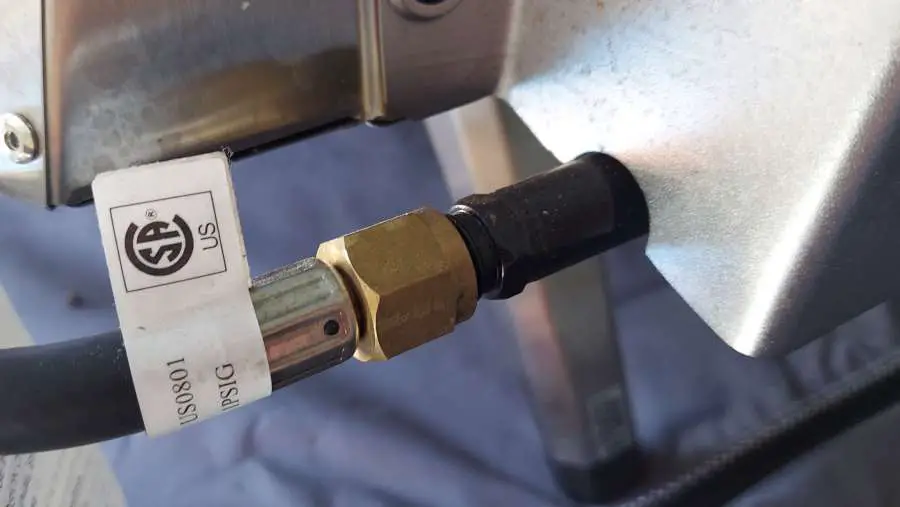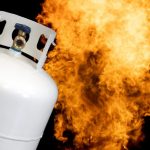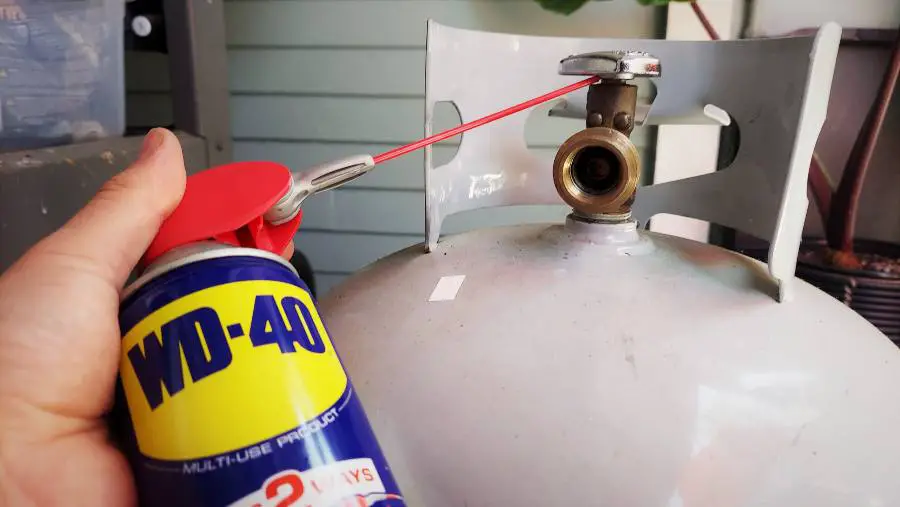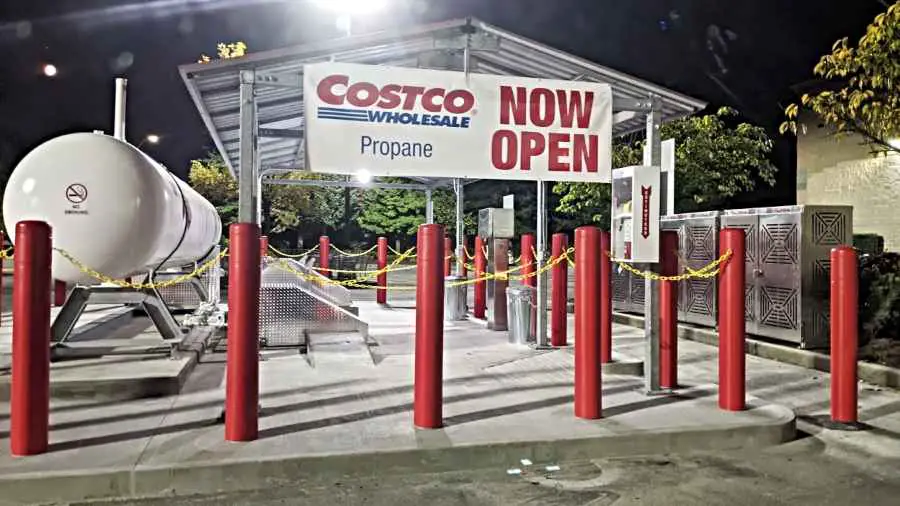Last Updated on May 23, 2024 by Dan Campbell
A propane heater is an efficient and inexpensive way to heat a room or space that is cold, whether that’s inside your garage or at an outdoor event, and it’s safe. Unlike electric heaters, propane heaters can easily be transported without requiring an outlet or battery to use. Most propane heaters can also be attached to smaller, lightweight 1lb propane tanks for portability.
Is Using A Propane Heater Indoors Safe?
Yes. Using a propane heater indoors is perfectly safe if you practice safe handling procedures. A properly working propane heater will burn clean and not produce carbon monoxide. Do not place near combustible material and keep it in a well-ventilated area. Make use of an additional Carbon Monoxide monitor for added safety.
All flames require three components in the right amount to burn: Fuel, Oxygen, and Heat. Removing any one of these elements will extinguish a flame.
It is important to have an abundant supply of oxygen in the room so the flame does not go out, or else the room will slowly fill with propane gas.
For this reason, it is important when deciding on which propane heater to buy to choose one that fits your size of the room. If you will be in an enclosed space make sure to purchase one that features an Oxygen Depletion Sensor (ODS). Ax Oxygen Depletion Sensor will automatically shut off the supply of propane to the heater if the room’s oxygen level drops too low.
Other safety features you should look for in a propane heater for enclosed spaces such as rooms, RV’s, cars, and tents include an accidental tip-over safety shut-off feature, overheat protection, and a heater with a high-temperature resistant guard in front of the heating element.
For additional safety, you can find a heater labeled with “UL certified”. UL provides testing for combustible materials and appliances to ensure they meet the highest of standards for safety.
Possible Dangers Of Using Propane Heaters Indoors
While propane heaters are safe to use indoors, there are always dangers with open flames and combustible materials. If you practice safe handling and follow your heater’s operation instructions you shouldn’t have anything to worry about. Some possible dangers include:
Oxygen Depletion In Enclosed Spaces
Any flame burning in an enclosed space will reduce the amount of available oxygen in the room. If the amount of oxygen drops too low, you risk the chance of passing out. Luckily, most portable propane heaters come with an Oxygen Depletion Sensor which will automatically shut off the supply of propane to the heater, turning it off.
The air we breathe is typically composed of 21% Oxygen and depending on the model of the heater, the Oxygen Depletion Sensor will shut off the supply of propane if Oxygen levels drop below 18%.
To ensure you do not risk any issues with oxygen depletion make sure to purchase a model that features an ODS, and if you can make sure to have an open vent to allow oxygen in the room.
Carbon Monoxide Poisoning
One of the major concerns with any heater or appliance burning fuels is the production of Carbon Monoxide. A propane burner typically burns clean and does not release carbon monoxide, however, incomplete combustion will produce carbon monoxide that will slowly fill the room you are in.
If your propane heater ever has a flame that is not blue, such as yellow or orange, immediately stop using the heater and have it serviced.
A flame that is not blue means the propane is not fully igniting and there is a problem with your heating unit.
Starting A Fire
Make sure to place your heater far away from any combustible materials, and that you regularly clean off your heater from particulate matter such as dust. Propane heaters should never be covered by anything, such as clothes or a blanket. If you’re using a wall-mounted propane heater make sure it is not on a wall that has combustible material.
Never leave your heater unattended and make sure to turn it off when not in use.
Using A Propane Heater for Camping
Can you use a propane heater in a tent? Yes! Propane heaters are great for camping, whether you’re in a tent or RV. Similar to an enclosed space, make sure your propane heater has the right safety features such as an Oxygen Depletion Sensor and accidental tip-over safety shut-off feature.
You may also want to purchase an additional carbon monoxide sensor for added safety. These can easily be placed near where you sleep and will alert you if too much carbon monoxide is in the room.
- Because you are in a smaller space it is important to take extra precautions when using a propane heater to stay warm.
- Make sure to place the heater opposite your entry/exit point
- Keep combustible materials away from the heater as best as you can
- Never sleep directly next to your heater. Try to have something separating you and the heater in case you roll over and hit it.
- Make sure the heater is not touching your tent or resting against any material, it should have open space around it




